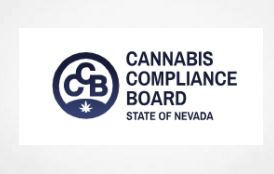Article by Consumer Markets Perspectives, Paul A. Kunynetz, Arie van Wijngaarden and Ana Badour
Since the legalization of recreational cannabis use in Canada in October 2018, investment has flowed into the cannabis sector. Industry participants can leverage financing to tap into new opportunities in what is (literally) a growth industry. While the right financing structure can be a critical advantage to any cannabis-related business, it is also important to remember that there are legal considerations involved, including in respect of anti-money laundering (AML) matters. These legal considerations include the preference of some cannabis retail customers to using cash as a payment method, concerns around privacy, and the risks associated with the supply of cannabis to ensure its provenance from legal sources. Financial institutions, cannabis businesses, and investors should therefore be very mindful of AML considerations.
In Canada, the Proceeds of Crime (Money Laundering) and Terrorist Financing Act (PCMLTFA) applies to a prescribed set of entities, including among others, banks, credit unions, life insurance companies, securities dealers and money services businesses. The PCMLTFA is administered by the Financial Transactions and Reports Analysis Centre of Canada (FINTRAC), which has issued policy interpretations relating to legal cannabis businesses.
Entities subject to the PCMLTFA are required to conduct a risk assessment in respect of their activities. When assessing risks relating to dealings with cannabis businesses, FINTRAC advised in its policy interpretations that this includes:
- reviewing whether the business is properly licensed;
- reviewing whether the business abides by applicable municipal requirements;
- assessing whether the transactional activity of the business is consistent with what is expected from other retailers or similar types of businesses; and
- assessing whether the types and amounts of transactions conducted are consistent with what is known about the business and the industry.
A reporting entity considering doing business with a legal cannabis-related enterprise is expected to assess and document any risks involved and must implement appropriate measures to mitigate against these risks. Dealings with high risk entities require enhanced measures, including taking additional steps to identify the individuals and confirm the existence of entities involved as well as conducting more frequent monitoring.
In addition, the Criminal Code includes a number of provisions in respect of dealing with money laundering and dealing with proceeds of crime. Unlike the PCMLTFA, which only applies to a limited set of entities, the Criminal Code applies to all entities, including cannabis businesses. Furthermore, Bill C-97 (the budget implementation bill) includes a new offense for “recklessness” in the Criminal Code with respect to money laundering. This has broader implications to individuals and businesses than those just subject to the PCMLTFA.
Accordingly, a prudent cannabis business should have in place an appropriate risk-based compliance program to prevent such activity, including measures and controls to ensure that the supply of cannabis is from legal sources. Entities financing cannabis businesses should perform due diligence to ascertain whether this is the case and seek to negotiate relevant representations and warranties to minimize risk and ensure compliance.
In the U.S., the Financial Crimes Enforcement Network (FinCEN) released its Expectations Regarding Marijuana-Related Businesses in 2014. FinCEN recommends that before taking on a cannabis client, financial institutions conduct appropriate due diligence, including:
- verification that the cannabis-related business is appropriately licensed and registered, including reviewing any documentation submitted to obtain such license(s);
- understanding the expected activity of the business, including the types of products sold and the target customer market (e.g., medical or recreational);
- requesting information about the business and related parties such as founders, officers, and directors from law enforcement authorities; and
- consistent ongoing monitoring of the business and its related parties for potential adverse information or suspicious activity.
The FinCEN Expectations also reiterate that financial institutions are required to file a Suspicious Activity Report (SAR) if they know, suspect, or have reason to suspect that a potential transaction involves funds from illegal activity, is designed to evade AML regulations or lacks a lawful business purpose. Similar requirements would apply in Canada with respect to the filing of Suspicious Transactions Reports (STR).
FinCEN’s marijuana guidance was based in part on the Cole Memo, which was rescinded in January 2018 by US Attorney General Jeff Sessions. FinCEN did not rescind its guidance.
Takeaways for Cannabis Businesses
Cannabis-related enterprises should be well-versed in the legal considerations for their business, including AML risks. This means proactively anticipating AML related diligence questions as well as being well-organized and able to provide complete and responsive answers regarding:
- their compliance program, including policies and procedures and measures in place to minimize the risk of money laundering;
- company ownership details and information about the owners and senior management of the company;
- a detailed explanation of operations, including usual transaction activity; and
- licensing and permit information relating to all levels of government.
Cannabis businesses need to be mindful of the AML risks relating to the industry, both for their own sake and to ensure that they can satisfy their financial institution. To do so, they should ensure they have in place a compliance program addressing AML risks, including appointing a responsible compliance officer, and having in place the necessary policies and procedures, training and auditing. AML procedures should be risk-based and could include limits on cash transactions, red flags to identify suspicious transactions, and the use of point of sale systems specifically designed for cannabis. In addition, these should address the risks associated with the supply of cannabis and ensuring the supply originates from legal sources.
Takeaways for Investors
While cannabis represents an opportunity for high returns, there are legal risks in financing a cannabis business. Prudent investors should seek qualified advice in respect of AML matters, as this is a complex area. This is particularly true for cross-border investments, such as an US or UK fund investing in a Canadian cannabis-related business.
Takeaways for Financial Institutions
As the cannabis market matures in Canada, financial institutions will have access to further data and history on the industry, allowing them to engage in more robust risk assessment of AML risks in dealing with cannabis businesses. It is and will remain important to be cognizant of the elevated risks associated with cannabis-related businesses and ensure compliance with relevant legislation, including building the appropriate compliance processes, such as rigorous know your customer applications, potential credit checks, police background checks, and tracing of sources of funds.
The content of this article is intended to provide a general guide to the subject matter. Specialist advice should be sought about your specific circumstances.



















